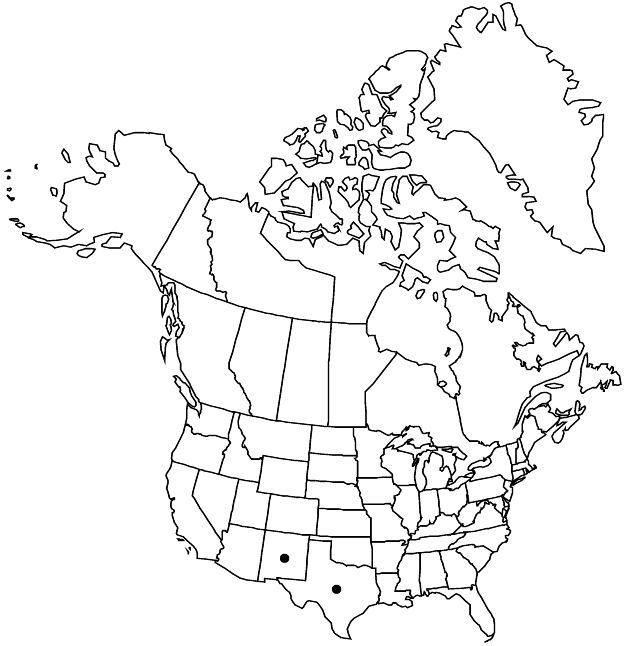Linum allredii
Phytoneuron 2011-33: 1, figs. 1, 3. 2011.
Subshrubs, to 25 cm, puberulent or glabrescent in proximal 1/3, otherwise glabrous; roots relatively thick, lateral. Stems stiffly ascending, suffrutescent from woody branching base. Leaves alternate, tightly appressed or ascending to spreading; stipular glands present throughout, dark; blade linear to linear-lanceolate, proximal and midstem leaves 3–10(–12) mm, distal leaves 3–7 × 0.6–1 mm, margins of proximal and midstem leaves entire, distal serrulate, teeth usually gland-tipped, not ciliate, apex of proximal and midstem leaves mucronate, distal acuminate-aristate. Inflorescences few-flowered panicles; bracts with irregular scarious margins. Pedicels 2–3 mm, conspicuously articulated. Flowers: sepals deciduous, lanceolate, 4.5–7 mm, margins not scarious, glandular-toothed, apex acute-aristate, glabrous; prominently 1-nerved; petals pumpkin yellow with a wide, pale, red band distal to a deeply wine red band at base, broadly obovate, 10–13 mm; stamens 5.5–7 mm; anthers 1.2–1.6 mm; staminodia absent; styles connate nearly to apex, 7–9 mm; stigmas dark, capitate. Capsules ovoid, 3.7–4 × 3 mm, apex obtuse, dehiscing into 5, 2-seeded segments, segments persistent on plant, false septa complete, translucent, proximal part membranaceous, not terminating in loose fringe, distal part cartilaginous, margins ciliate. Seeds 2.4–2.7 × 0.9–1.1 mm.
Phenology: Flowering Apr.
Habitat: Gypsum soils.
Elevation: 1100–1200 m.
Discussion
Linum allredii is a rare endemic known from seven to 12 occurrences in the Yeso Hills border region of New Mexico and Texas, apparently restricted to gypsum soils. When Sivinski and Howard described this species, they noted that it occurs only on pale, sandy, biologically crusted gypsum distinct from adjacent, darker gypsum. The corollas are deeply bowl-shaped. The filaments and styles are the same pumpkin color as the petals, the stigmas are dark maroon, and the pollen is bright yellow. Linum allredii and L. kingii are the only species in the flora area growing from a woody base.
Selected References
None.
